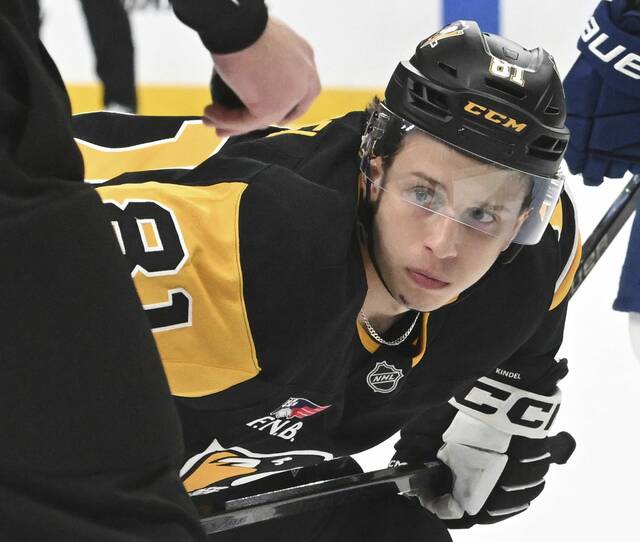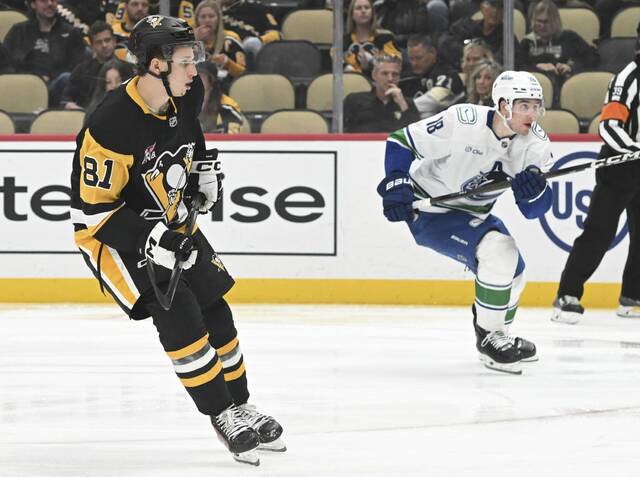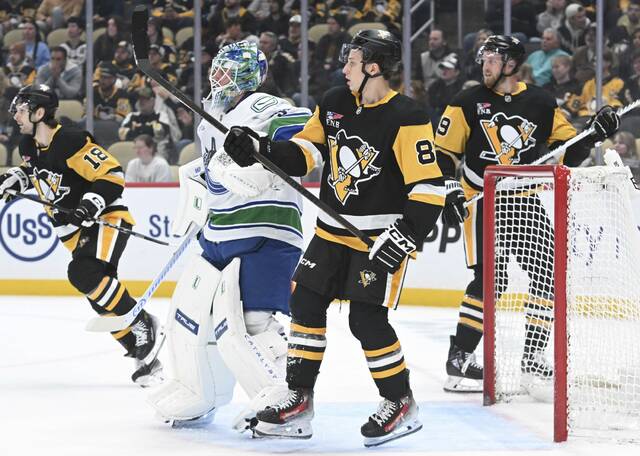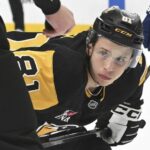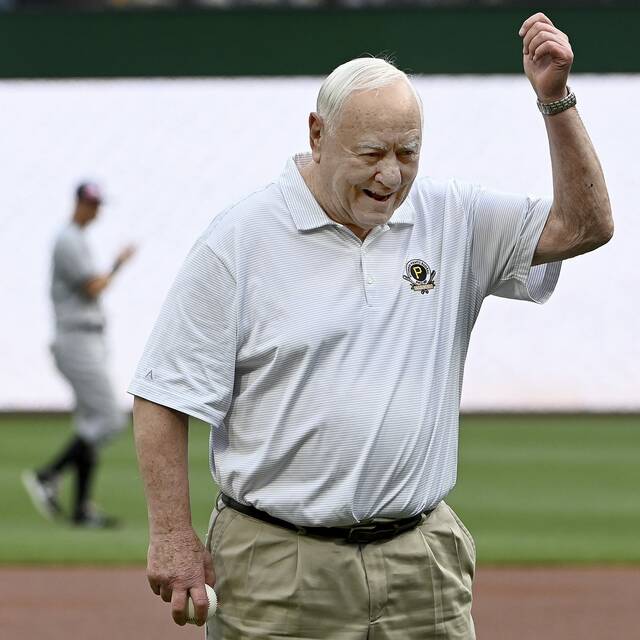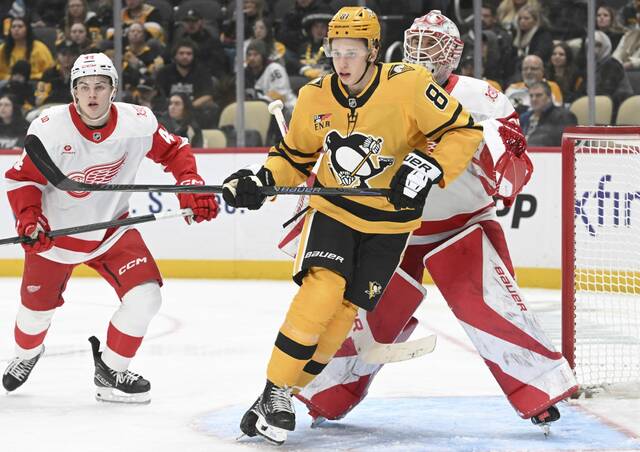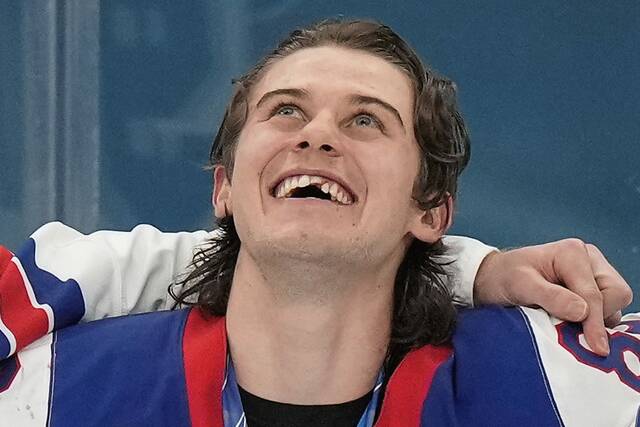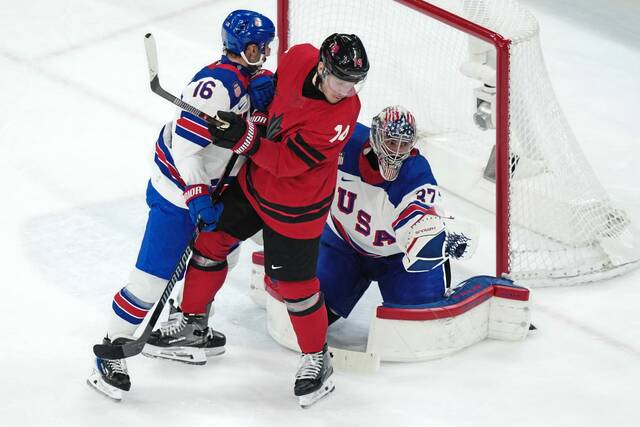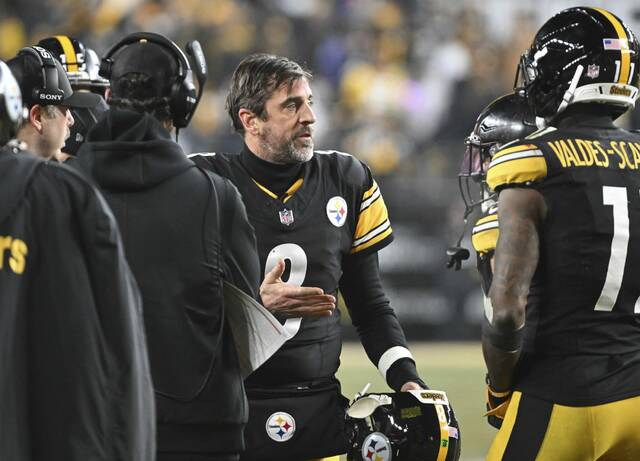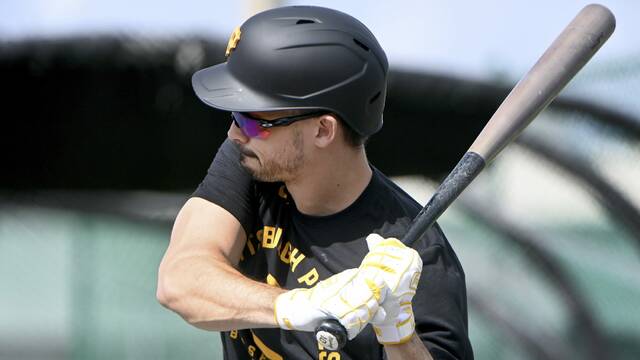It’s early in the development of rookie forwards Ben Kindel and Ville Koivunen. Kindel is with the Pittsburgh Penguins, Koivunen with their Wilkes-Barre/Scranton farm club.
But here’s a cautionary tale:
The Penguins picked Russian winger Aleksey Morozov in the first round of the 1995 NHL Draft (24th overall). Morozov played in Russia for two full seasons after being drafted, then came to the NHL.
Morozov had stunning offensive skills. But those Penguins had a surplus of that.
So Morozov, a top-six talent, usually played in the bottom six. He learned to be a bottom-six winger: Chip-and-chase, play it safe, little craft or creativity.
Morozov’s talent was diluted by the circumstances foisted upon him. Coaching put Morozov in a position to not succeed, and that’s exactly what he did. He played seven NHL seasons, netting just 84 goals in 451 games. His season high was 20.
Morozov proved himself in 2002-03, when he skated on a line with Mario Lemieux and Alexei Kovalev and got 25 points in 27 games. But then he broke his wrist.
Odd stat: Eleven of Morozov’s goals (and three more in the playoffs) were scored against New Jersey’s Martin Brodeur, perhaps the greatest goalie ever. Said Brodeur, “The guy’s in my kitchen. He’s in my head. I can’t get rid of him.”
Morozov didn’t return to the NHL after the 2004-05 lockout. (Lucky for Brodeur.) He found opportunity and his offensive touch in Russia.
Morozov won scoring titles and MVPs in his homeland. He was named best forward at the 2007 world championships. He scored 283 goals in 665 Russian pro games.
All that doesn’t equate to NHL success. But it showed Morozov’s capabilities and illustrates how the Penguins squandered his talent.
Morozov could have had great success playing with the Penguins in the early days of Sidney Crosby’s tenure. He might have helped win a Stanley Cup in 2009.
But the Penguins took filet mignon and made it into hamburger.
I initially disagreed with sending Koivunen, 22, to the minors after just two games with the Penguins this season.
But it’s better for him to play in the top six with Wilkes-Barre/Scranton than in the bottom six with the Penguins.
That brings us to Kindel, 18. He was the 11th pick in this year’s NHL Draft.
Kindel’s ceiling is probably the second line. But he should reach that and do well. His defensive industry and hockey IQ are off the charts for a teenager.
But right now, Kindel is laboring on a line with curtain-jerkers Tommy Novak and Filip Hallander. He’s learning to be a bottom-six — like Morozov did.
That’s not to say Kindel should be handed better opportunity on a silver platter. Kindel has one goal and no assists in six games. He looks good, not great.
But Kindel’s projected role for the rest of this season should figure heavily into deciding whether to keep him for the entire NHL season or send him back to Major Junior.
An archaic agreement between the NHL and Major Junior says that 18- and 19-year-olds must be returned to their Major Junior teams before playing more than nine NHL games or spend the whole season in the NHL. They can’t be sent to the American Hockey League.
It’s a stupid rule, it’s anti-development, and now that Major Junior kids can go to college hockey as per a recent NCAA decree, the elite ones figure to do so in droves. Like Gavin McKenna to Penn State.
Kindel can play three more NHL games before the Penguins decide. (Same goes for defenseman Harrison Brunicke.)
If Kindel is to stay, he has to play more with better players. If he’s projected as a top-six forward, that’s how he should be used most of the time. It’s more crucial for Kindel to get better than it is for Justin Brazeau to ride out his fluky Brett Hull impersonation.
Kindel should also get more power-play time. He might be a prodigy in that regard. He shows more power-play acumen than most of those on the Penguins’ top power play. Kindel should crack that unit.
If this season is about development, that’s the best way to develop Kindel.
If that’s not in the cards, return Kindel to Major Junior. It might not challenge him enough, but at least he’d continue on his path to being a top-six. (He’d get valuable experience in the World Junior Championships if Canada selected him. Even if Kindel stays in the NHL, the Penguins could let him play. That tournament is Dec. 26-Jan. 5 in St. Paul and Minneapolis.)
Before deciding what to do with Kindel, I’d play him on Crosby’s line for a few games.
Crosby might not like it. He wants to skate with Rickard Rakell and Bryan Rust.
But it’s Crosby’s job to help develop kids, too. Here’s betting Kindel and Crosby think the game similarly and might find chemistry. It’s certainly worth finding out.


